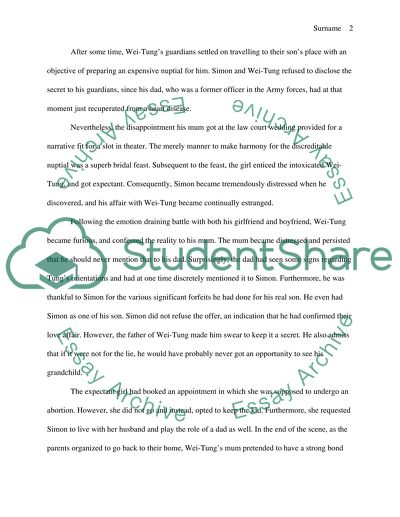Cite this document
(“Father Knows Best: Ang Lee's take on filial piety and identity in Essay”, n.d.)
Father Knows Best: Ang Lee's take on filial piety and identity in Essay. Retrieved from https://studentshare.org/visual-arts-film-studies/1472888-ypfather-knows-besty-ang-leeyies-take-on-filial
Father Knows Best: Ang Lee's take on filial piety and identity in Essay. Retrieved from https://studentshare.org/visual-arts-film-studies/1472888-ypfather-knows-besty-ang-leeyies-take-on-filial
(Father Knows Best: Ang Lee'S Take on Filial Piety and Identity in Essay)
Father Knows Best: Ang Lee'S Take on Filial Piety and Identity in Essay. https://studentshare.org/visual-arts-film-studies/1472888-ypfather-knows-besty-ang-leeyies-take-on-filial.
Father Knows Best: Ang Lee'S Take on Filial Piety and Identity in Essay. https://studentshare.org/visual-arts-film-studies/1472888-ypfather-knows-besty-ang-leeyies-take-on-filial.
“Father Knows Best: Ang Lee'S Take on Filial Piety and Identity in Essay”, n.d. https://studentshare.org/visual-arts-film-studies/1472888-ypfather-knows-besty-ang-leeyies-take-on-filial.


